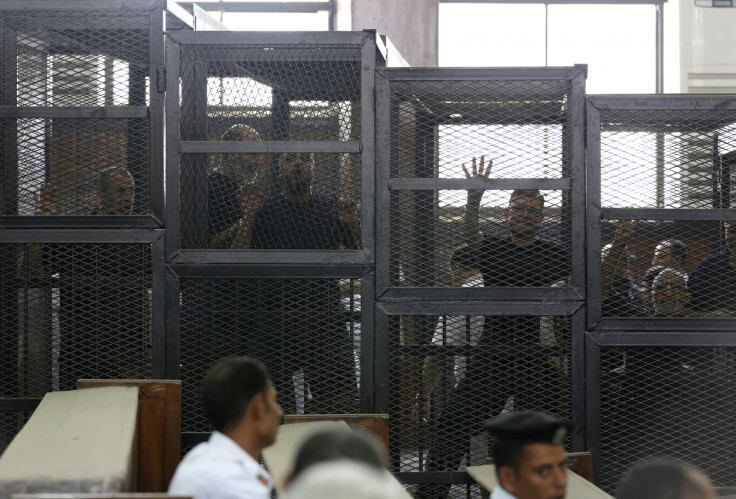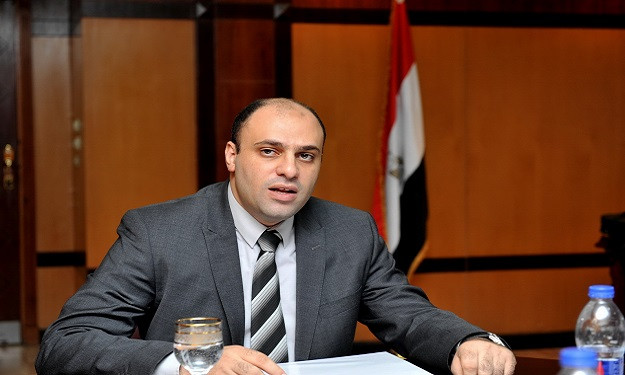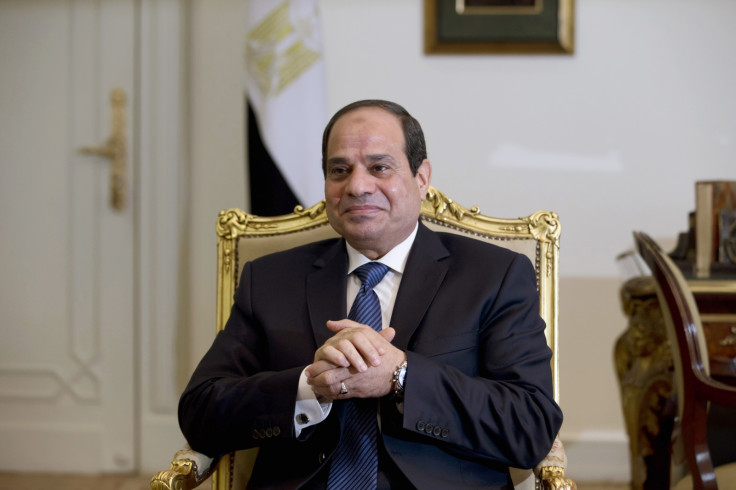Exiled Muslim Brotherhood minister says liberals and Islamists are united against Egypt 'dictator' General Sisi

An exiled Muslim Brotherhood minister has admitted that the Islamist party made mistakes when it ruled Egypt but that the country now faces an existential threat that had united Egyptians against current president General Abdel Fattah al-Sisi.
Tens of thousands of Egyptians took to the streets against Mohammed Morsi in 2013, protests that Sisi used to justify overthrowing the Muslim Brotherhood in June of that year.

Many liberals welcomed the army intervention which ousted the Morsi government, but former investment Yehia Hamed said that liberals and Islamists alike have since realised that the coup was a disaster for Egypt.
Speaking from exile in Istanbul, Hamed told IBTimes UK that Morsi – who was sentenced to death last month – was undoubtedly unpopular with many Egyptians who had taken part in the 2011 revolution which overthrew dictator Hosni Mubarak.
Sisi is worse than all the dictators that we have known in Egypt since the Second World War.
But the mass jailing of activists of all political stripes, journalists and opposition figures under Sisi has made party or religious distinctions irrelevant in Egypt.
"I have been talking to [...] the opposition who were standing on the streets on 30 June (protesting against Morsi) and regardless of differences of viewpoint we are totally [united]. We are not speaking about Islamists anymore," said Hamed.
"I am telling you that everyone in Egypt right now who took part in the [2011] revolution, all of them – whatever they felt about [the overthrow of Morsi] on 30 June – are [now] clear that what is happening in Egypt right now must stop immediately.
"Sisi is worse than all the dictators that we have known in Egypt since the Second World War."
Hamed said that the Muslim Brotherhood – officially known as the Freedom and Justice Party since 2011 – had made mistakes after winning Egypt's first democratic elections in 2012, when Morsi beat former Mubarak minister Ahmed Shafiq with 51.7% of the vote.
This included allowing the Egyptian army to have a role in the political process and alienating liberal forces in the country.
"Everyone who is in power makes mistakes. [I] can tell you a lot of the mistakes that we made: One of them was to trust the military junta that supported Mubarak for years that they could be part of an integral system. The question of inclusiveness is another one that the Muslim Brotherhood and the Freedom and Justice Party need to have a real assessment [of] – as will other parties," he said.

But he said that the lessons had been learned and defended Morsi's record in power.
"I think we have learned the lesson that we can have all kinds of disagreement under the democratic [system], under a real democracy you don't fear of having protesters against you, you must protect them. Whatever disagreements you had against Morsi, not one journalist was kept behind bars," he said.
"The one thing that we agree on is that this system cannot continue. We will not [accept] another 30 or 40 years of bloody oppression that Sis and his gang wants to [impose on] Egypt."
As for support for Sisi within Egypt today, he said it was impossible to gauge since protesters and activists were routinely jailed and abused and protests are fired on by the army. In recent months, dozens of Muslim Brotherhood members have been sentenced to death, including the party's spiritual leader, Mohammed Badie.
"Right now if you go into any demonstration, you will be shot by live ammunition. So tell me how can we judge if he has got popularity or not?" he said.
A former Vodaphone executive who has worked in both Egypt and Saudi Arabia, Hamed is part of a new generation of Muslims Brotherhood politicians that have rose to prominence since the 2011 revolution. The 37-year-old was investment minister under Morsi as well as being a key adviser to the president.
© Copyright IBTimes 2025. All rights reserved.






















